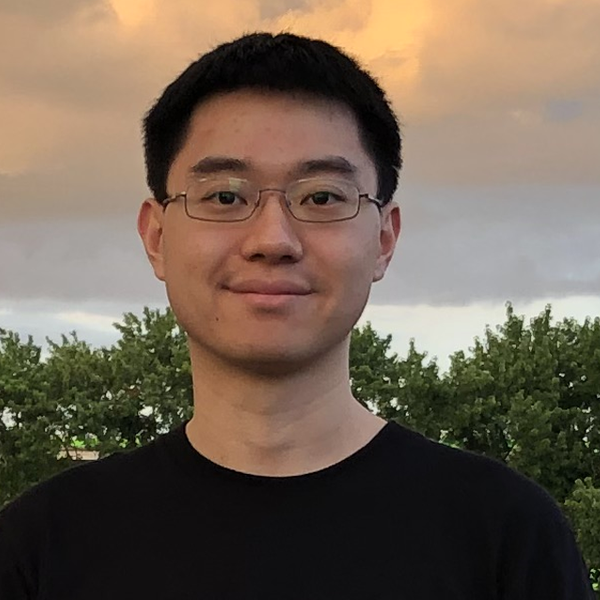Lia Purpura, Wasp Nest (detail), featured in AGNI 102
The surgeons weren’t successful. He could tell from the way Ma stroked his left hand. It was the same hand she’d tied down when he learned to write. Chinese parents never held hands, just as they never said I love you. Twenty years after her citizenship test, Ma finally became an American mother there by his hospital bed. Ba’s knees jittered up and down, bouncing grandchildren that would never exist.
The doctors said bilateral simultaneous torsion was a one in a million occurrence. The cause was unknown. There were no underlying health problems, predisposing conditions, or genetic histories to pin the blame on. He’d simply suffered a stroke of bad luck, like getting struck by lightning or crushed by a tree. White professionals were always saying things like that, as if there was comforting solidarity to be found in comparisons with brain-amoeba patients and terror-attack victims. Ba didn’t hold the door on the way to the parking lot.
He hadn’t exactly failed in his filial duties. His underwear and sheets were stained with years’ worth of children. Just the night before, he sent 200 million into tissue paper. Ba bestowed 200 million on Ma after making partner, 200 million of an estimated 525 billion a man would send off in a lifetime. E pluribus unum, Mr. Burkoff always said in AP U.S. History. Out of many, one. Out of 525 billion, he had to be the one that took—the one who’d curse his dynasty to extinction. By late spring, he was eighteen and had exhausted his supply of luck. He was accepted to Harvard in March and rejected for the prom in April.
Mr. Shaughnessy said the Irish lost a million during the Great Famine. The Chinese lose a million every time the Yellow River sneezes, a dozen million every time the dynasty changes. They don’t teach that in AP World History. The Chinese treat good fortune like white people treat the Cross. They hang it on every wall, wear it on necklaces, pass it around during Spring Festival, sing songs about it at Chinese school, bellow it into WeChat after babies are born. Good fortune must’ve skipped a generation. His testicles achieved in twelve hours what Mongol hordes and Japanese tanks never could.
Back home, he refused to show where the porn was hidden. Ba uninstalled Windows and smashed the desktop for good measure. The doctors said to lie down every couple of hours, but he remained standing among the pieces long after Ba stormed out. All the letters of the alphabet lay scattered across the bedroom floor. He refrained from touching any of them, merely studied each symbol as Ma cried downstairs. This plastic lineage, cut short. He alone knew what he’d typed when the keyboard was still intact.
Mrs. Solema said his family tree was the best in AP Biology. He had gone further back than anyone else, stopping only at the top of the poster board. It was the universe’s most sublime tapestry, the infinitude of ancestry. He wished he could trace back a hundred generations, before the first imperial dynasties emerged. Millennia of invisible, uncountable forebears had given birth without hospitals, without anesthesia, without failure. He would never know their names or faces, but each was as real as the icepack pressed against his crotch. There were ninety million Wangs. They were the most populous family in the world. No one would mourn the ending of his line.
The only thing he traced that night was the horizontal scar below his navel. Lying in bed, he brushed the unfamiliar wound with tentative strokes. Until yesterday, his hands had leapt with thoughtless desperation. Now, his fingers crept along the edge of denial, skirting along the boundary of unhealing shame, and prodded the empty remnant of flesh.
He wasn’t a eunuch, at least in the Chinese sense. The hearth was gone, but he still had the chimney. The missing parts might not be noticeable if he faced the wall in public showers. Perhaps there were girls who wouldn’t mind. He planned to leave the lights off anyway. He might still get married, although he was no longer sure what she would look like. Maybe his relatives wouldn’t whisper about him at dinners. It sounded impossible, but he’d beaten worse odds.
Chinese parents never held hands, but there were exceptions. When Burt Jackson kept hollering “squinty-eyed chink,” Ba held his hand at the bus stop for the rest of the year. None of the other kids looked like him. None of the other sixth graders needed their parents. The knowledge of this made his eyes damp again. Ba’s hand looked so large as it encompassed his. Even now, he still felt his father’s grip: hard with foreign stubbornness, soft with familiar permanence.
“Whenever you feel alone, just remember you have me,” Ba said on that snowy morning. “I had no one to hold my hand when I first came here. But along came your mother, and now you. Out of one, comes three.”

Melvin Li
Melvin Li is a PhD candidate in creative writing at Florida State University. He holds an MFA from the University of Iowa. “Woundwood” is his first published story. (updated 4/2023)
